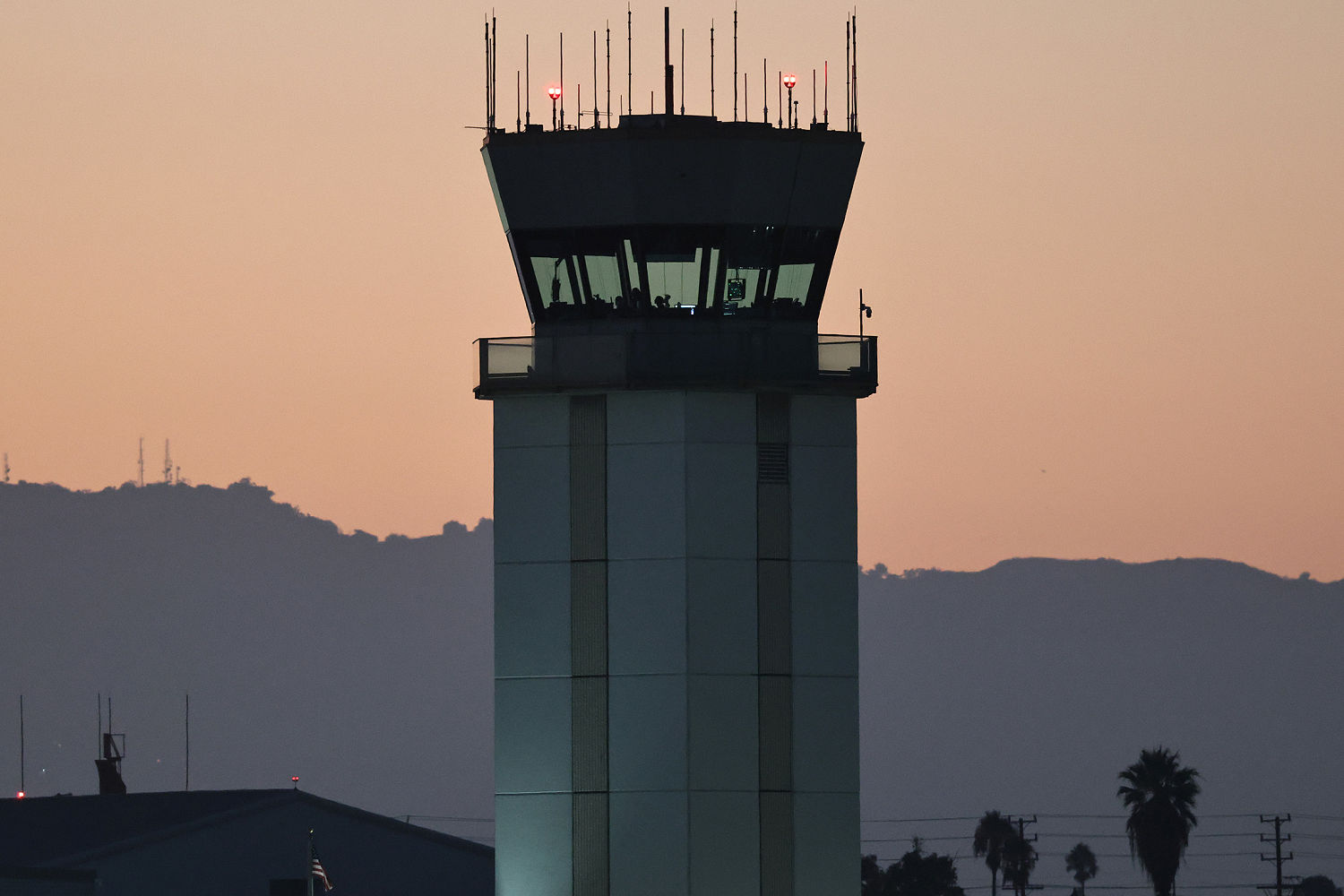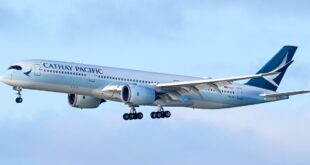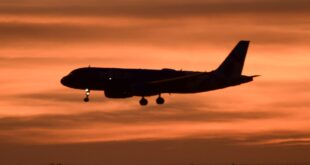

Four days into the government shutdown, Jack Criss, an air traffic control specialist at Andrews Air Force Base in Maryland, assumed a second role — driving for DoorDash.
“My financial obligations were mounting. I wanted to get ahead of the situation. The writing was on the wall,” Criss told NBC News.
That financial pressure is only expected to grow Friday, when Criss and other air traffic controllers are set to miss their first biweekly paycheck for work performed during what is now the second-longest shutdown in U.S. history. The expected $0 checks, to be delivered by Oct. 28, follow a check that paid only 90% of their total pay, reflecting work mostly done in September.
While back pay has been promised, thanks to a 2018 law that requires compensation for workers who work during a shutdown, current and former air traffic controllers told NBC News they are more concerned about long-standing issues, including controllers being overworked amid staffing shortages.
As essential workers, air traffic controllers are required to work without pay during a government shutdown. But the possibility of a dragging shutdown — and more missed paychecks — after Congress on Wednesday rejected a bill to reopen the government for the 12th time has officials calling for a swift solution.
“If we don’t have the staffing levels … you will see us delay traffic,” Transportation Secretary Sean Duffy said Thursday. “You will see us cancel flights. Because I want you to get to where you’re going, I want America to get to their destination and get there safely.”
‘Sick outs’ are happening
Due to staffing levels, delays and cancellations have already been plaguing major hubs.
Nick Daniels, the president of the National Air Traffic Controllers Association, made clear that those delays are not the result of “sick outs” or the notion that controllers who aren’t being paid are calling in sick in droves to avoid working without pay. Doing so could even result in termination, he added.
Instead, he told NBC News in a phone interview, staffing shortages that predate the shutdown are leading many controllers to work 10-hour shifts, six days a week, or longer. Duffy said Wednesday that the industry is operating with about 2,000 fewer controllers than it needs.
The stress of the job under current conditions can cause controllers to call out sick. One controller in the Northeast, who spoke to NBC News on condition of anonymity, said that after a day of radio and radar issues, a controller took sick leave due to the stress. The controller “actually said he truly felt sick to his stomach the way things are run around here,” the controller said.
In another instance, an operations manager had to go to the hospital because “he felt like his heart was beating out of his chest,” the controller added, noting the current mental stress of the job.
The manager took some time off afterward, the controller said, adding: “He said it scares the s— out of him.”
Taking up side gigs
Given that controllers don’t know when their next paycheck will hit, Daniels said “hundreds” of his union members have taken up side gigs amid the shutdown. And that number is “growing rapidly,” he added.
Duffy mentioned at a Friday news conference at Philadelphia International Airport that airlines have been helping bridge that financial gap for controllers by providing meals at no cost. But it shouldn’t be up to airlines to ensure that the country’s air traffic controllers are being fed, he added.
“They have to make choices, and the choices they’re making is to take a second job,” Duffy said at a Thursday news conference alongside House Speaker Mike Johnson. “Well, I don’t want my air traffic controllers to take a second job. I want them to do one job.”
But while added side gigs have left air traffic controllers exhausted, Daniels said he is not concerned about safety issues — even if risk is heightened daily during the shutdown. He said officials will control the number of planes in the sky and restrict air traffic when necessary to accommodate workers’ needs and ensure travelers reach their destinations safely.
Stephen Abraham, a retired air traffic controller who worked in the industry for 28 years, noted that missed paychecks are the tip of the iceberg for already stressed controllers who have to be on their A game through each long shift.
“Controllers can’t have B days. Every day has to be an A day. You can’t half-ass your job. It doesn’t work,” he told NBC News.
He said the “repercussions of a mistake are dramatic” and that even if that mistake doesn’t result in a tragic accident, air traffic controllers are held to a standard of perfection daily.
“I can explain to a family why grandma shows up two hours late,” he added. “I can’t explain to a family when grandma doesn’t show up.”
The staffing shortages have become something of a catch-22, explained Garld Graves, a retired air traffic controller with 28 years of experience. The industry can’t hire and train new controllers fast enough to satisfy the demand, so people are leaving because they are so overextended.
Duffy is also raising the alarm about the dwindling number of air traffic controllers. On Thursday, he said air traffic control students are questioning the job and thinking about pivoting “because they don’t want to work for a system that won’t pay them.”
“It’s our employer that’s slapping us in the face,” Graves said, referring to the frustration that Congress is still being paid while the government is shut down.
Daniels believes it’s not up to his union members to strong-arm a deal to reopen the government.
“There is no scenario where we’re being put into a position to succeed,” Daniels said. “We don’t start shutdowns. We’re not responsible for ending them. Why are we used as the political pawn and the pressure point to see when a shutdown should end?”
For Criss, there is little time to think about the politics involved in reopening the government.
Currently, the air traffic controller in Maryland spends his weekdays manning the skies from 8 a.m. to 4 p.m. Then, he drives for DoorDash until he has to pick up his daughter from basketball practice.
On the weekends, Criss is clocking eight or nine hours driving for DoorDash, he said. It’s a schedule he intends to keep until the government reopens.
He wants politicians to find common ground so he and his colleagues can return to work and pay their bills. In an already stressful position, Criss admitted it’s even harder to keep his cool.
“Well, how do you control your emotions when you don’t really know when you’re going to freaking get another paycheck?” he asked.
 Latest Breaking News Online News Portal
Latest Breaking News Online News Portal






